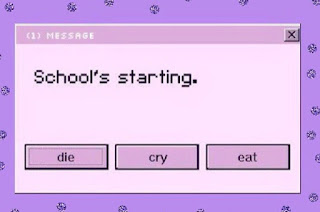The Science of Indecisiveness
Pizza or Pani Puri?
KK or One Direction?
Read a book or binge a TV show?
We've all been confronted with 'crucial' life choices but many a time, when under pressure, it is common to feel paralysed; so yes, don't worry - you're not the only one.
In fact, scientists have found that nearly 20% of the adult population suffers from this.
Why?
Let's find out!
Researchers have found that the stability of preference-based decisions relies on the intensity of communication between two specific areas of the brain, rather than the strength of activation in individual brain regions. To investigate this, they employed transcranial alternating current stimulation, a non-invasive technique that modulates brain activity patterns. They reduced information flow between the prefrontal cortex (located just below the forehead) and the parietal cortex (above both ears) while participants made preference-based or sensory decisions about food.
The study revealed that when the information flow between these two brain regions was disrupted, individuals became less decisive in preference-based decisions but showed no such effect in sensory decisions. This finding indicates that effective communication between these regions is critical for determining one's preferences, but not for making objective, fact-based choices.
This means that when we decide whether we like something, it's like a conversation between two brain areas; and if that conversation isn't clear, we become unsure about what we like. But when we're just deciding based on clear facts, this brain conversation doesn't matter much.
To describe with an example, these parts would activate when you would have to choose between two fruits for consumption - not when you have to determine if a plum is bigger or a watermelon.
While intensifying the information flow did not improve decision stability in healthy participants, the research could have implications for therapeutic applications in individuals with impulsiveness and indecisiveness resulting from brain disorders.
Of course, it's a given that not everyone who suffers from indecisiveness also suffers from a mental illness - it's only a consequence.
Decision-making varies among individuals and there isn't a one-shot solution that suits everyone. When it comes to deciding whether to pursue an activity, some individuals may create a list of pros and cons, while others may rely on their intuition.
While this post may have been slightly heavy on content and scientific terms, I hope I could simplify the process of how we think and process these thoughts! Don't forget to share and comment for new content, every Friday :)
Signing off,
Kuhu :)





Comments
Post a Comment